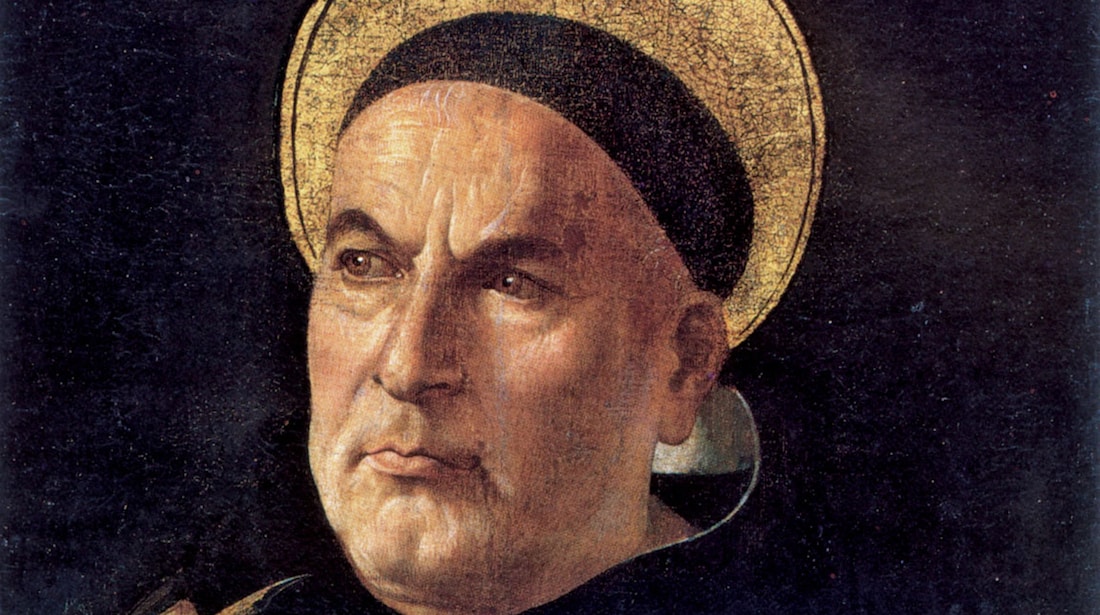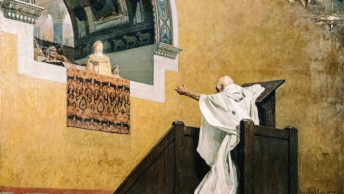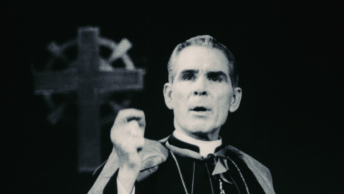“But what if science does discover a gay gene? What will you do then?” These two questions were posed to me by a good friend during a recent discussion about homosexuality. Like many people today, he is open to the possibility that people who choose the homosexual lifestyle are simply born that way and, as a consequence, really don’t have much of a choice in the matter.
I, on the other hand, see homosexual behavior as sinful and destructive to both the individual who practices it and the culture that condones and encourages it.
Our cordial discussion made me think about the importance of determining how we see societal issues and how we arrive at the positions we hold. In other words, what is our philosophical base for deciding what is right and what is wrong? How does a society decide its laws? Upon what are they based?
For example, are laws simply a social construct where certain societies establish laws because they seem to make their society function in an orderly fashion? Since this set of laws is not based on any outside authority but rather on some kind of consensus of the people, then the laws can be changed at any time and for any reason. And if a society is ruled by a monarch or a religious leader with total power, then he can simply create rules or remove them at will. The same would apply to a society governed by an oligarchy with unlimited power.
Or is morality determined by natural law, the belief that the world is ordered and that their are moral laws intuitively grasped by people if they seek them with reason? Aristotle wrote, “In ritual it is harmony with Nature that is prized.” The ancient Chinese called natural law the Tao, a way of life that existed from the beginning of time. Indian masters referred to the Rta, laws that even the gods had to obey. In summary, C.S. Lewis called natural law “the doctrine of objective value, the belief that certain attitudes are really true, and others really false, to the kind of thing the universe is and the kind of things we are.”
And, of course, millions of people make their moral choices based upon their religious beliefs. A practicing Catholic, for example, will look to the teachings of the Church for moral guidance. A Protestant, on the other hand, might seek moral answers in the Bible, just as a Muslim would turn to the Koran.
Now how would these belief systems deal with our original topic of homosexuality? If sexual morality is a social construct, then how two people choose to sexually interact is completely up to them. The government has no role to play except to protect their “right” to act as they see fit. We can see how this has played out in America. Not that long ago, homosexual acts were considered immoral and prohibited by laws in all fifty states. But as mentioned above, any social construct is subject to change. Today our nation recognizes not only homosexual acts but goes further and codifies so-called homosexual marriage.
Under natural law, reason would tell people that the male and female bodies are different and are “designed” to physically fit together in copulation. In addition, it is reasonable to see that the purpose of copulation is the propagation of the species. Consequently, homosexual acts are unnatural and inevitably sterile. Societies would be wise to not only condemn such activity but also use laws to discourage it.
As for religion as a base for moral judgment, let us just focus on Catholic teaching. Since the first century of the Church, homosexuality has been condemned as an act contrary to the laws of God. St. Paul could not have been clearer when he wrote these words to the Romans (1:26-27):
For this reason God gave them up to dishonorable passions. Their women exchanged natural relations for unnatural, and the men likewise gave up natural relations with women and were consumed with passion for one another, men committing shameless acts with men and receiving in their own persons the due penalty for their error.
For two-thousand years, the Church has unequivocally condemned homosexual acts as mortal sins. The Catechism of the Catholic Church declares that “homosexual acts are intrinsically disordered” and “contrary to the natural law.” While the Church condemns unjust discrimination against homosexuals, it stills calls them to chastity.
Much of the confusion and error on the part of Catholics when it comes to matters of a sexual nature is that they have no sound basis upon which to form proper judgments. They know neither natural law nor the Church’s official teaching. Thus, they are easily swayed by the winds of perverted modernity.
It is imperative for the Church to teach the faithful how to think rationally so that they can make sound moral judgments. A good place to start would be in the pulpit. It’s not that hard. St. Paul figured it out two-thousand years ago.








